When the king died, he did something unusual every morning
Japan’s Imperial Family famous as a place where the rules are strictly followed and men are honored and promoted. However, there was a special queen in history who made the king break the rule that has existed for hundreds of years. Moreover, she also plays an important role in controlling the fate of the country. That is Empress Teimei!
The talented bride won the royal heart
Mrs. Teimei was born on June 25, 1884 in Tokyo, Japan, into a noble family. The empress is the fourth daughter of Mr. Michitaka Kujo, of the Fujiwara clan. Her father was a member of the House of Commons and was well known at court. Mrs. Teimei came from a noble family but was raised very strictly, attached to the countryside to understand the precious values of life.
As Teimei grew older, it became clear that she was an intelligent, talented and exceptionally healthy girl. At that time, Prince Taisho, who was 5 years older than Mrs. Teimei, was not in his normal health. Taisho, who would later inherit the throne, suffered from meningitis when he was only 3 weeks old, which affected his health and intellect. The crown prince of Japan at that time suffered from a speech disorder and had difficulty walking.
Therefore, the emperor at that time was King Meiji determined to find his son an intelligent, competent and dignified wife to support Prince Taisho when heir to the throne later. In the end, he found the daughter-in-law who had all the elements the king wanted, that was Teimei. In February 1900, when Teimei was 15 years old, she was engaged to the Prince of Japan. In May 1900, the couple held a traditional wedding ceremony at the ancestral worship area and the Royal Palace.
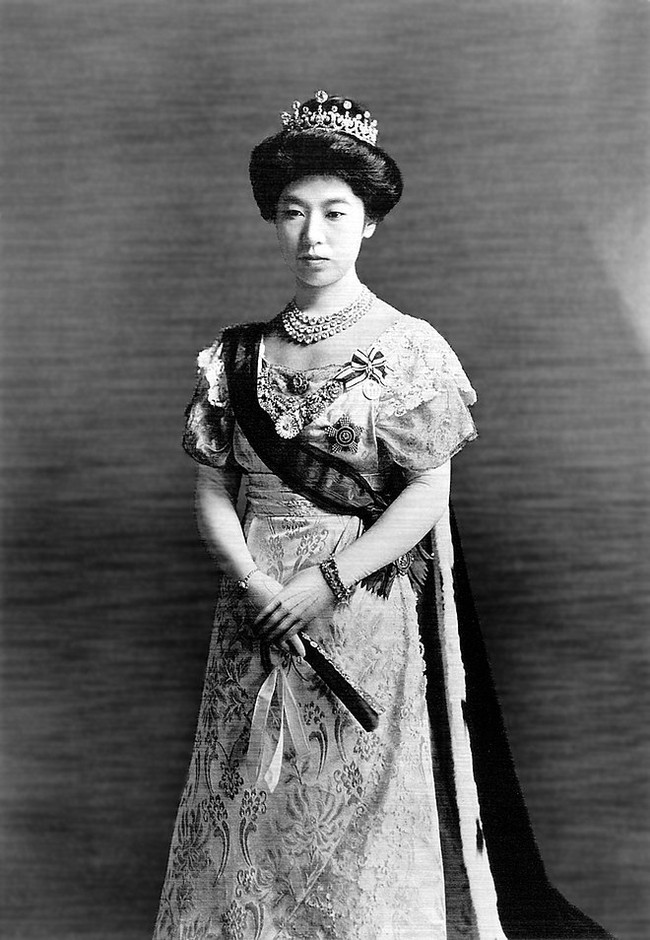
Mrs. Teimei fully met the requirements for selecting the Emperor’s daughter-in-law.
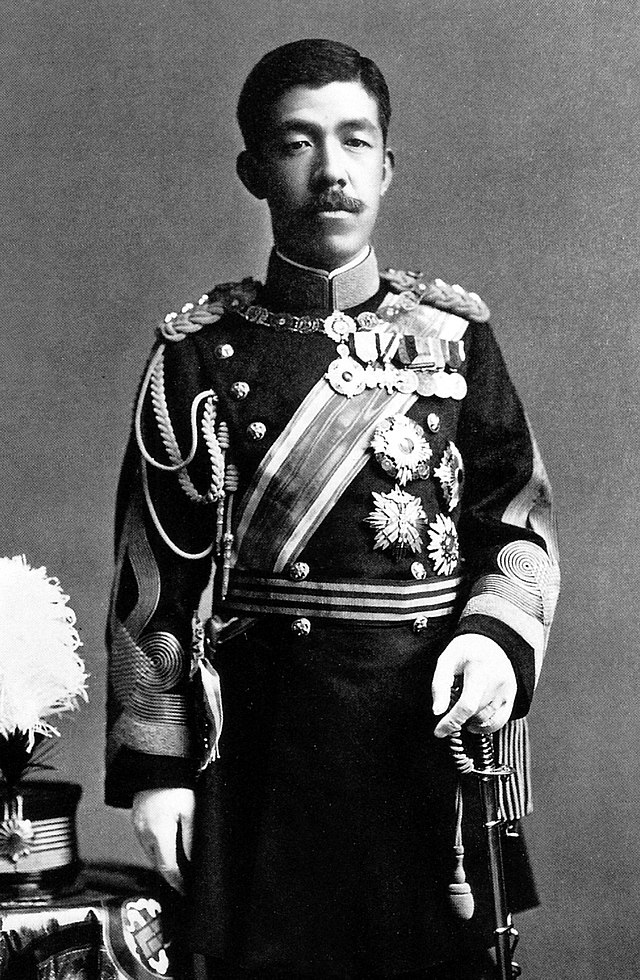
Prince Taisho at that time had many health problems.
At the same time, Mr. Taisho became the Crown Prince of Japan and Mrs. Teimei was made the Crown Princess. Before becoming a royal bride, Mrs. Teimei had to learn the rules and etiquette of the Palace. The person who taught the future Empress of Japan was a strict noble lady. Despite the overwhelming training process, Ms. Teimei still feels grateful for those tough days that helped her adapt more quickly to becoming the mother of the world.
Make the king break the rule that lasts for hundreds of years
After getting married, the couple lives in Akasaka Palace and enjoys a happy married life. A year later, the Crown Princess gave birth to her first son, Prince Hirohito (who would later become Emperor Showa).
Mrs. Teimei forcefully broke a royal rule when the Crown Princess took care of her husband’s essential needs by herself instead of depending on servants. Touched by the wholehearted devotion of his wife, Crown Prince Taisho later announced that he would not accept more cards, he had only one wife.
This crown prince broke the tradition that existed for hundreds of years, opening the history of monogamy – a husband of the Japanese royal family. Mrs. Teimei also became the first Empress in Japanese history to become the only wife of the king. The couple later gave birth to three more sons, a testament to their strong bond of love.
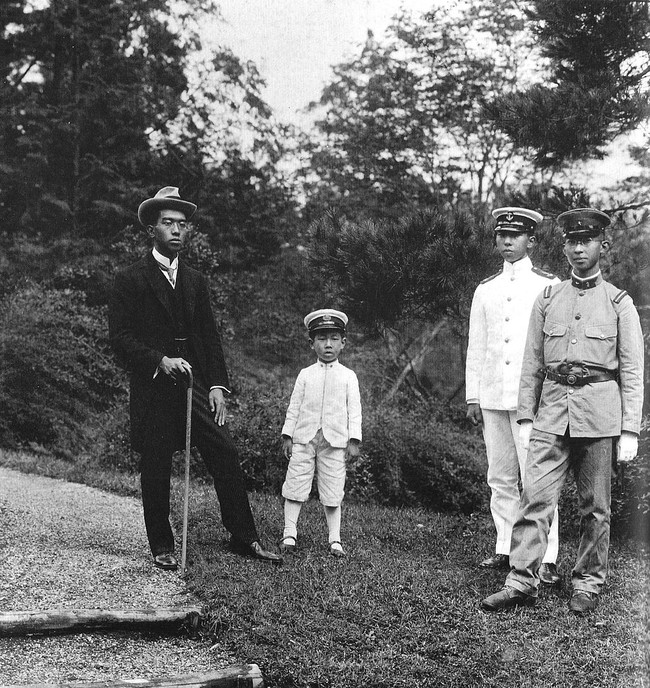
Four sons of Empress Teimei and his wife.
Emperor Meiji died on July 30, 1912, and Crown Prince of Japan ascended the throne as the country’s new king. Because the new Emperor had limited health, at that time Mrs. Teimei, the new Empress of Japan, played an important role in the court.
Empress Teimei promoted the silk industry, and she herself was involved in mulberry farming to make the finest yarn. The Empress also focuses on developing medical activities, taking care of the sick and supporting the lighthouse keepers.
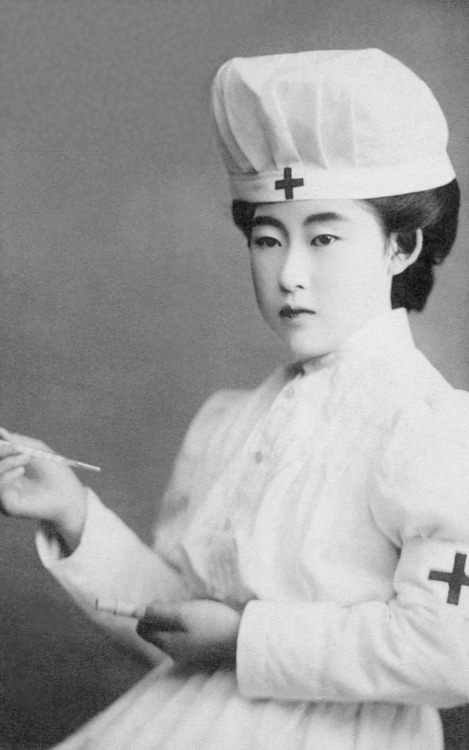
Empress Teimei was also interested in the medical field.
For the next few years, due to poor health, Emperor Taisho often stayed in the palace, limiting his public duties. Empress Teimei took care of domestic and foreign affairs on behalf of her husband. On November 25, 1921, Crown Prince Hirohito was appointed regent in place of the king.
On December 25, 1926, Emperor Taisho died after a heart attack at the age of 47. Crown Prince Hirohito succeeded as the next new Emperor. After her husband died, Mrs. Teimei became the Empress Dowager.
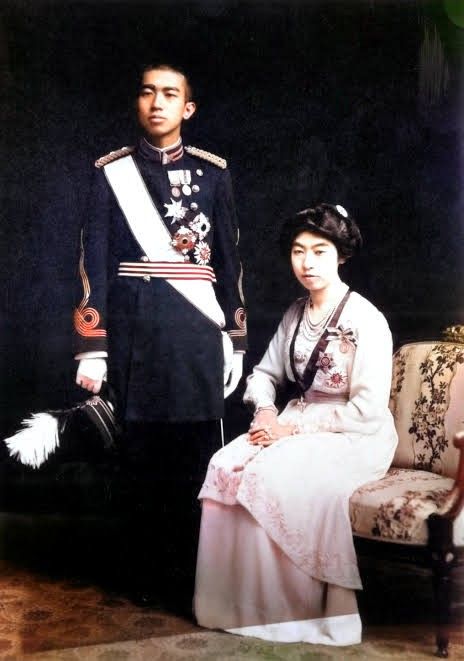
Empress Teimei wholeheartedly supported her husband. When the king died, she also did not forget to give him the most noble feelings.
The queen is devoted to her husband and children
It is said that, after the Emperor’s death, Empress Dowager Teimei maintained a habit of spending the morning sitting in a room with a portrait of her deceased husband. The empress dowager’s attendants said that Teimei spoke to the portrait as if the husband still existed and she was serving him like she was alive.
Despite her husband’s death, Empress Dowager Teimei is still active and helpful to society. She took the lead in helping people with leprosy. In 1931, the Japanese government established the ‘Association for Prevention of Leprosy’ using donations from Empress Dowager Teimei. The week to raise awareness and understanding about leprosy was also born, choosing the time before and after the Queen Mother’s birthday.
As a mother-in-law, Empress Dowager Teimei is said to be strict with her eldest daughter-in-law, Empress Kojun. Although she was from the nobility, Empress Dowager Teimei was raised and raised in the countryside. Meanwhile, Empress Kojun was raised in adequate conditions, so the views between mother-in-law – daughter-in-law are not the same.
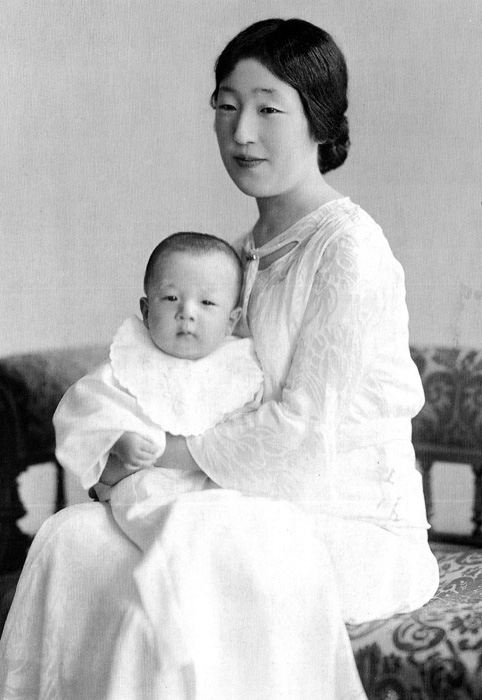
Empress Kojun was unpopular with her mother-in-law.
Once, the two clashed during Emperor Taisho’s treatment. At that time, Kojun, who was still the Crown Princess, wrung a towel to help her father-in-law cool down, but still wore gloves. Mrs. Teimei at that time was not satisfied with this behavior of her daughter-in-law, she should have taken off and took care of the king with the utmost sincerity.
Mrs. Teimei is said to have told her daughter-in-law: “When I ask you to do it, do it, don’t arbitrarily touch it“At that time, Crown Princess Kojun could only keep quiet.
Many people believe that Empress Teimei’s harshness towards her eldest daughter-in-law only comes from the fact that she always wants Empress Kojun to become a solid pillar to take care of the Emperor and the harem. Meanwhile, the Empress Dowager loved the sisters in her husband’s family. She regularly invites them to dinner and tea at the Royal Palace.
On May 17, 1951, Empress Dowager Teimei died after suffering an angina attack. At the time, she was preparing for a royal event. The Empress Dowager’s body is buried near her husband at the Musashi Imperial Cemetery in Tokyo, Japan. In 66 years of her life, Ms. Teimei has devoted half of her time to her husband, children and the royal family. Her great merits are still honored to this day.
Source: Unofficialroyalty, Leprosyhistory
at Blogtuan.info – Source: Afamily.vn – Read the original article here


